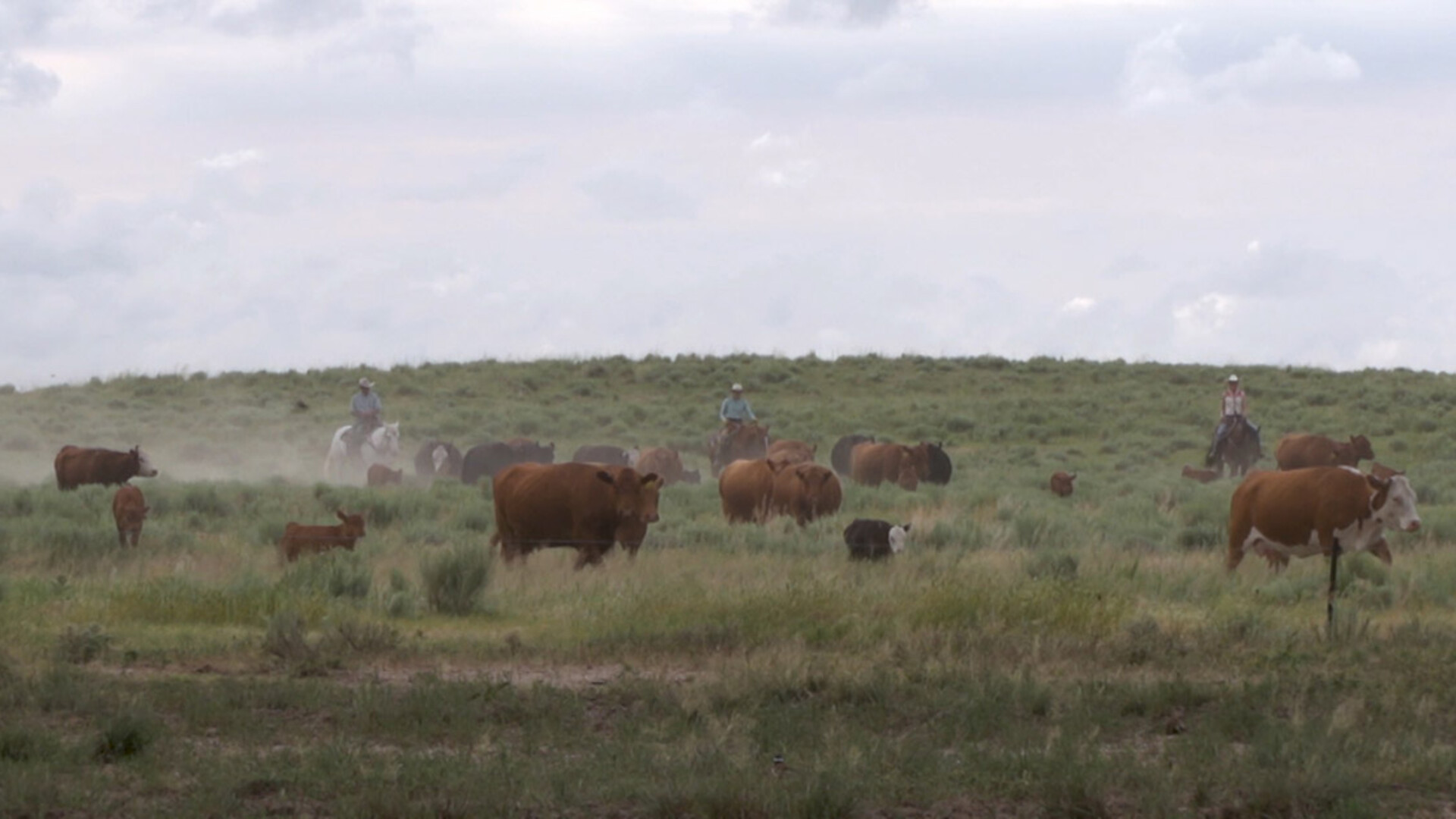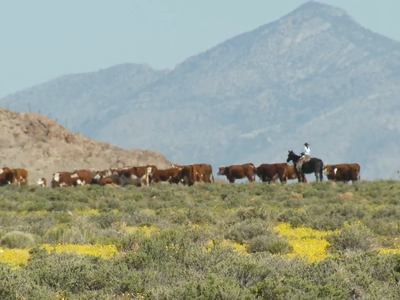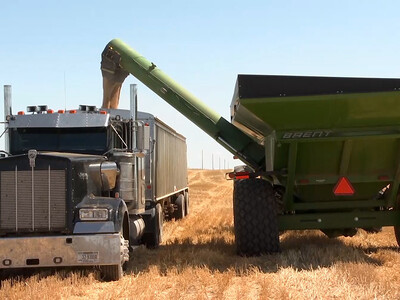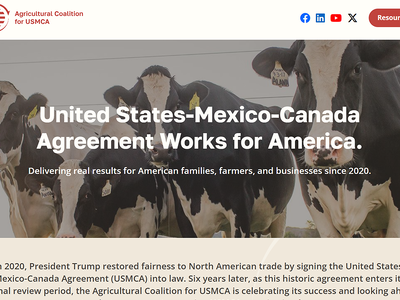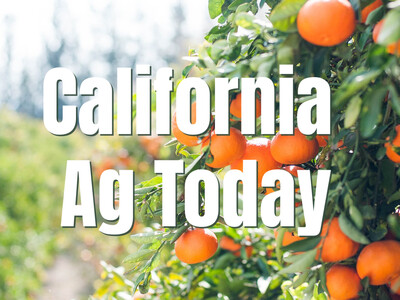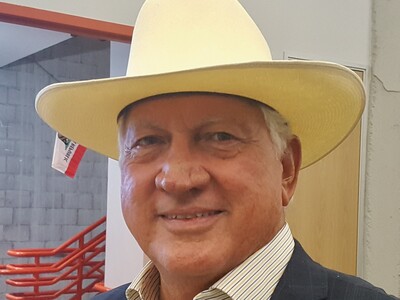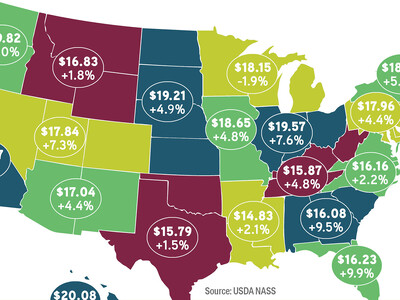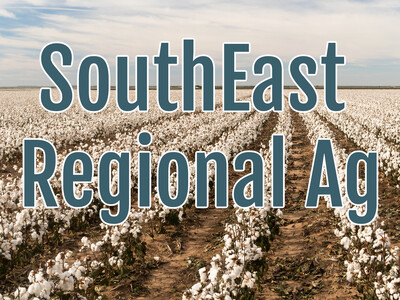USDA Announces $3 Billion Investment in Agriculture Package with Drought Relief Funds
USDA is directing billions of dollars to prevent the spread of African swine fever, bolster disaster programs in response to drought hurting cattle producers and farmers facing market disruptions.The agency announced on Wednesday plans to tap funds from the Commodity Credit Corp. as part of what USDA calls a "comprehensive investment package."
The $3 billion package is aimed at supporting drought resilience and response, animal disease prevention, market disruption relief and purchase of food for school nutrition programs.
In addition, USDA announced the launch of a climate-smart partnership initiative to finance what U.S. Secretary of Agriculture Tom Vilsack called in a speech on Wednesday the "production of climate-smart commodities" through a series of large-scale pilots and demonstration projects. The agency is seeking public comment on the program by Nov. 1.
USDA is designating $500 million through the CCC to support drought recovery and encourage the adoption of water-smart management practices.
"Record-breaking drought has affected producers across the country and has left ranchers with bare winter pastures and short on hay and pushed crop producers to adjust to running their operations with a fraction of the water usually available," the agency said in a news release.
The USDA plan will designate up to $500 million to prevent the spread of African swine fever by expanding and coordinating monitoring, surveillance, prevention, quarantine and eradication activities through USDA's Animal and Plant Health Inspection Service.
African swine fever has spread in recent weeks from the Dominican Republic to Haiti, and USDA has expanded efforts to prevent its spread to the U.S. mainland.
Rep. Angie Craig, D-Minn., said farmers in her state need drought assistance and are concerned about the spread of ASF.
"Minnesota has suffered from dangerously dry conditions all year, and more than 50% of the state is still experiencing severe drought -- creating dire conditions for Minnesota's farmers and livestock producers who were just beginning to recover from the COVID-19 economic crisis," Craig said in a statement.
"At the same time, pork producers in my district and across the country face the threat of an ASF outbreak, which would be devastating to the American pork industry and our rural economy. For our family farmers and producers, these are not sustainable conditions."
USDA also will provide $500 million in relief for agricultural market disruptions including increased transportation challenges, availability and cost of certain materials, as well as other issues with marketing and distribution of certain commodities.
The USDA announcement includes up to $1.5 billion to help schools respond to supply chain disruptions. The funds will be used to support procurement of agricultural commodities and to make sure students have reliable access to healthy meals.
"American agriculture currently faces unprecedented challenges on multiple fronts," Vilsack said in a statement.
"The coronavirus pandemic has impacted every stage of our food supply chain, from commodity production through processing and delivery. Farmers, ranchers and forest landowners increasingly experience the impacts of climate change as severe storms, floods, drought and wildfire events damage their operations and impact their livelihoods. We know these challenges will continue into 2022, and others may emerge."
In response to the USDA climate portion of the announcement, ethanol industry groups were quick to point to ethanol as a "climate-smart" commodity.
"Earlier this year, RFA's ethanol producer members led the way in pledging to reach net-zero carbon emissions, on average, by 2050 or sooner, and the program announced today by USDA could play a critical role in helping us get there," said Geoff Cooper, Renewable Fuels Association president and CEO.
"Ethanol is the perfect climate-smart commodity, and we look forward to reviewing and commenting on USDA's new program."
Just last week, USDA announced nearly $75 million in grants for 15 projects under its Regional Conservation Partnership Program.
Among the grant recipients is the American Coalition for Ethanol, which will work in South Dakota to incentivize no-till farming, cover crops and nutrient management for farmers supplying a farmer-owned ethanol facility.
"Ultimately, we need farmers and ethanol producers to reap the rewards of these practices in future low-carbon fuel markets," ACE CEO Brian Jennings said in a statement. "We're hopeful this new program announced today can provide further opportunities to demonstrate how value can go all the way back to farmers for producing low-carbon biofuels."
The Biden administration has announced a goal of achieving net-zero emissions by 2050. Vilsack said during a speech on Wednesday the goal "won't happen" just with current technology and research and development.
"The private sector is advancing solutions such as new fertilizer formulations, new methods of protein production, a new generation of feed additives for ruminants, and advanced manure systems," he said.
"We are establishing a 'Comprehensive Climate Change Center of Excellence' that will ensure that these technologies and others are positioned to be adopted, building a platform to enable climate change decision making based on the latest science."
The Food and Agriculture Climate Alliance said in a news statement it was "encouraged" by USDA's announcement seeking proposals to advance voluntary climate-smart farming and forestry practices. FACA includes 80 organizations representing farmers, ranchers, forest owners, agribusinesses and other industries.
"Secretary Vilsack's focus on pilots to get the policy right will help inform future discussions and ensure we are doing the best for the environment, our farms and ranches, and rural communities," said Zippy Duvall, FACA co-chair and president of the American Farm Bureau Federation.
"Reducing barriers, addressing challenges, and encouraging opportunities for all farmers and ranchers, no matter the size of their farm or where they are located, will be key to success."
Source: DTN


